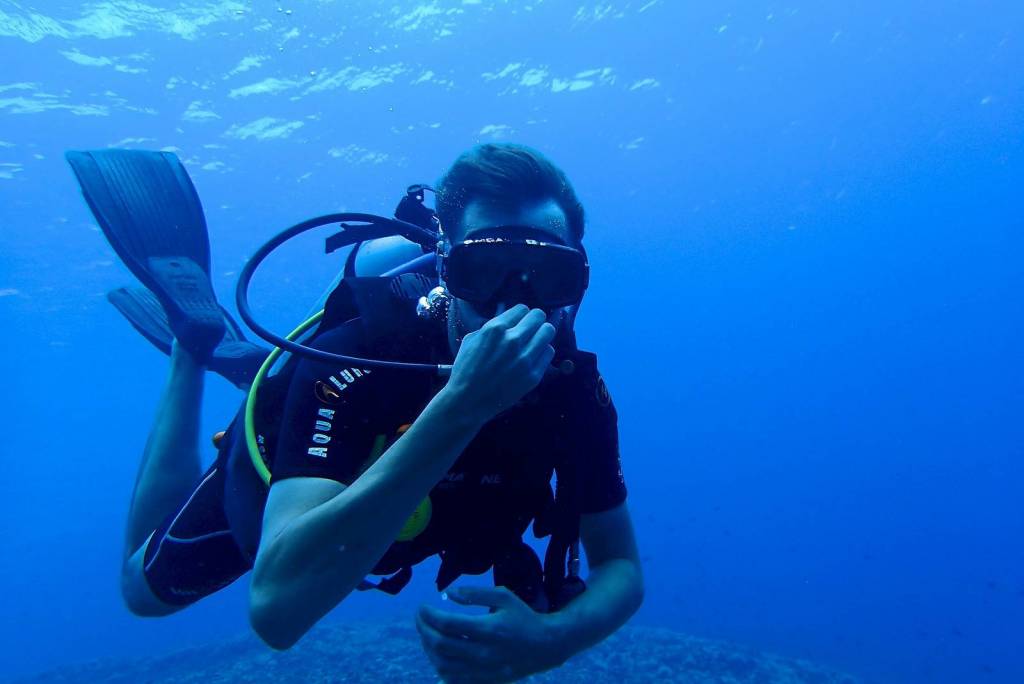Information
Tips for Safe Scuba Diving in Thailand
Safe Scuba Diving in Thailand
Scuba Diving is an adventure activity that requires the use of specialized life support equipment in an underwater environment where humans could not otherwise exist. As with other adventure activities, scuba diving has elements of risk that cannot be totally eliminated regardless of the amount of training, care, caution or expertise. With the development of proper Knowledge, Skills, Equipment, and Experience. Ultimately it is up to each individual diver to assume the inherent risk associated with scuba diving and each diver’s responsibility to minimize the risk through exercising good judgment, common sense, respect, and personal awareness during all diving activities
As a Responsible Diver
1. DIVE COMPETENTLY – Always dive within proper training, certification, experience, comfort, and ability.
2. MAINTAIN APPROPRIATE DIVER HEALTH – Including appropriate fitness, physical health and mental awareness to dive.
3. UTILIZE A DIVE PLAN – Plan each dive and dive THE plan. Listen to and follow dive briefings.
4. BE A RESPONSIBLE DIVE PARTNER – Remain with your dive partner at all times from start to finish of the dive and if you lose your buddy make a plan to reunite if separated underwater.
5. INSPECT DIVE EQUIPMENT – Before each dive, check equipment and make sure everything is working properly, confirm cylinder valve is completely open. When using blended gas (i.e., Enriched Air Nitrox) – analyze the gas and know its MOD limitations. Being Properly weighting is the main factor for good buoyancy control as well as knowing how to release weights, check buoyancy compensator (BC) and inflator is connected and functioning properly, check that the submersible pressure / depth gauge or dive computer is easily accessible and know how to use each.
6. DIVER AWARENESS – Monitor cylinder pressure; making sure to surface with reserve gas and never run out of gas. Monitor depth and time, respect no-decompression limits, perform controlled ascents, safety stops, and monitor your dive partners.
7. MAINTAIN PROFICIENT SCUBA SKILLS – understand that scuba skills and knowledge are perishable. If it has been more than six months since the last dive, understand the importance of taking a Scuba Skills Update course. I will maintain proper buoyancy throughout the dive, ascend slowly, and breathe properly to avoid overexpansion injuries.
8. RESPECT THE ENVIRONMENT – Be aware of currents, waves, visibility, temperature, weather, boat traffic, slippery, uneven and unstable surfaces, overhead environments, entanglements, and hazardous marine life, understand boats are unsteady surfaces and will always use one hand to stabilize. Safe drivers understand the importance of taking an orientation dive with a local professional when diving in unfamiliar environments.
9. A PLAN FOR EMERGENCIES – In addition to inspecting all of the dive equipment, safe divers check are familiar with the “: Buddy system and pre-dive safety check their dive partner’s equipment is functioning properly, configured appropriately, know how to remove weights in case of an emergency. Check Buddies alternate air source is properly secured and easily accessible in case of a low air or out of air emergency. All Divers should review scuba hand signals and how to alert others in case of an emergency. Prior to the dive discuss emergency action plans in case you or your dive partners have an emergency.
10. ACCEPT RESPONSIBILITY -Ultimately You the diver are responsible for your safety during all diving activities. Failure to comply with these responsibilities will increase the risk of serious injury or death. Accidents can happen even when all safety guidelines are followed, therefore you should obtain personal dive accident insurance.

